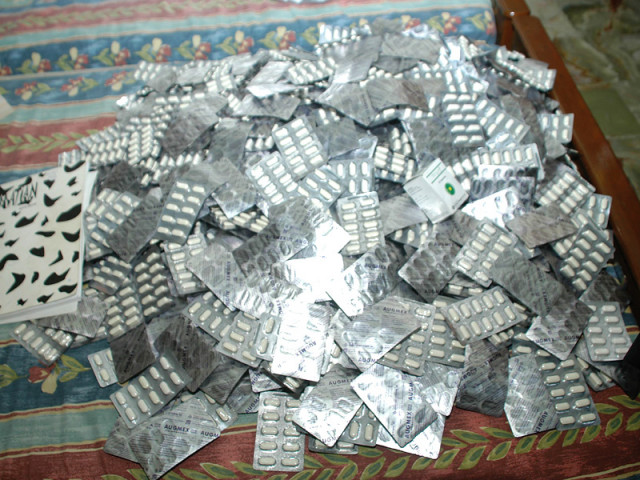Drug monitoring: We need a central drug regulatory authority, says PMA
Doctors see over-the-counter empty capsules, badly stored biological drugs as a part of the problem.

The Pakistan Medical Association (PMA) expressed concern over the loopholes in the process of registering medicines in the country and has demanded that a federal or central drug regulatory authority be set up immediately.
They want the government to withdraw all those drugs that do not meet the criteria set by the WHO and develop a mechanism to deal with emergencies like the one caused by IsoTab in Lahore in which 107 patients died. They warned that this will continue to take place if the Drug Act of 1976 and the laws are not updated, according to the standards of World Health Organisation (WHO), said the honorary secretary general of the PMA, Dr Mirza Ali Azhar, at a press conference on Monday.
“It is shameful that our laboratories are not even competent enough to find out what was wrong with IsoTab and we had to seek foreign help,” he said referring to testing in the UK.
Dr Qazi Wasiq of the PMA in Karachi said that the government was waiting for a no-objection certificate (NoC) from the Punjab government, which said that it would issue one once Lahore’s Sheikh Zayed Hospital was devolved. Sindh, Balochistan and Khyber-Pakhtunkhwa have already have already issued NoCs. “This politicisation of the matter needs to be done away with,” he said.
Dr Qaiser Sajjad of the PMA in Karachi said that drug regulation was so absent that anyone could buy empty capsules over the counter, fill them with anything and sell them without being stopped at any point.
Biological drugs are not stored in cold storage, as advised by the WHO, either. “Hence, diabetes and hepatitis patients are a high risk of developing adverse reactions to these drugs,” he said. “I am a doctor but even I would not take responsibility for any drug now.”
Another serious problem besides counterfeit drugs, said the president of PMA Central, Dr Tipu Sultan, was the registration of biological drugs, such as insulin, interferon (immunity regulators), vaccines and growth hormones. He said that these drugs need expert handling and are sensitive to environmental changes.
Reporters at the press conference suggested that with a federal authority, the country might end up with multiple regulatory authorities because of devolution. But the president of the PMA, Dr Idrees Adhi, insisted that the matter needed to be governed from a central body. He gave the example of the Pakistan Medical and Dental Council, which was still a federal authority and was not devolved.
He explained the logic behind the demand put forward by the doctors. Having a separate regulatory authority for every province will cause confusion and increase corruption because drug manufacturers supply nationally and not to individual authorities. Having many drug-regulatory authorities will mean that each drug is tested separately in every province. “Had this been an effective method, then India and America would have as many drug regulatory authorities as the number of states,” said Adhi. “There should be a central authority while the provinces can have their own food and drug inspectors.”
Dr Aziz Khan Tank, the secretary general of College of Family Medicine of Pakistan, stressed that there should be a state-of-the-art testing lab. “Pakistani medicines, which constitute 80 per cent of total consumption, should be monitored, along with the 20 per cent medicines which are imported,” he said.
Published in The Express Tribune, February 7th, 2012.



















COMMENTS
Comments are moderated and generally will be posted if they are on-topic and not abusive.
For more information, please see our Comments FAQ